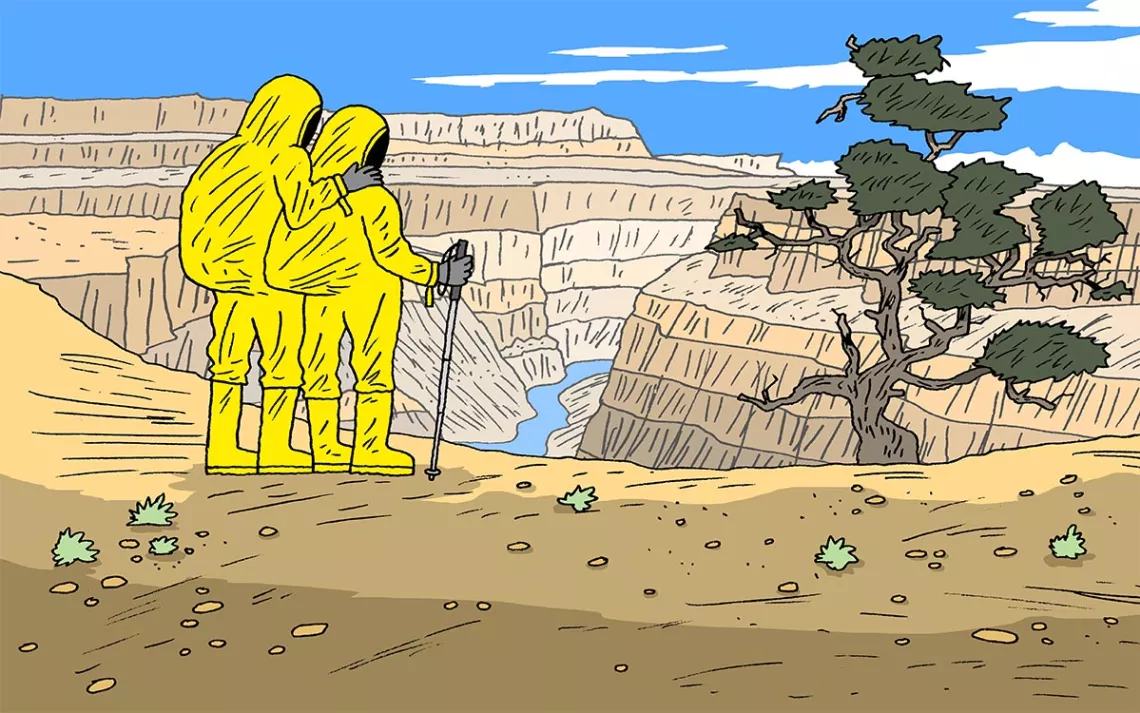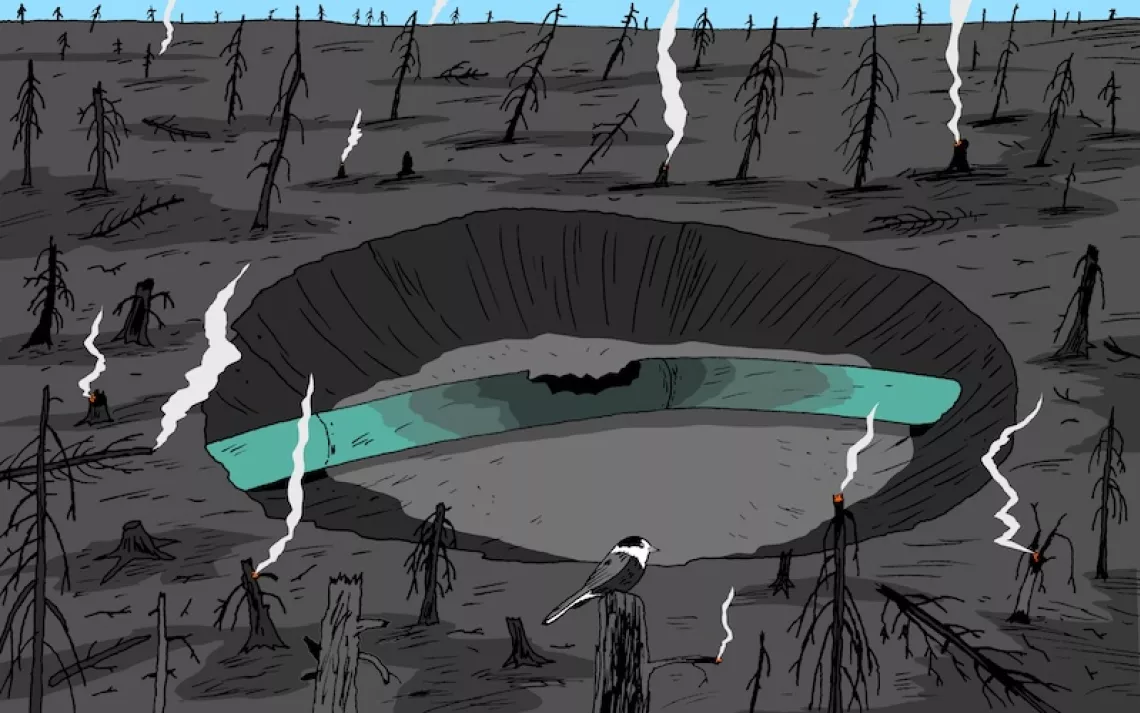ICYMI: Grand Canyon Uranium, Batman’s Carbon Footprint, & More
A weekly roundup for busy people

Illustration by Peter Arkle
An appeals court upholds a ban on uranium mining in a million-acre area around the Grand Canyon. The Trump administration is considering lifting the ban.
Documents obtained by the Washington Post show that a uranium company lobbied the Interior Department heavily to shrink the boundaries of the Bears Ears National Monument so that it could mine and mill uranium in the area.
Mothers who live within one kilometer of fracking sites are as much as 25 percent more likely to give birth to low-weight babies.
House Majority Leader Paul Ryan calls on American women to bear more children.
More than 700 EPA employees have left the agency since Scott Pruitt took over in March.
Scientists warn that the Arctic is warming at an unprecedented rate. Alaska was so warm in November 2016 that researchers’ computers rejected the temperature data as implausible.
The National Park Service reduces the number of days in which visitors can enter for free from 16 to four.
After 2019, says the World Bank, it will no longer finance oil and gas projects.
ExxonMobil agrees to disclose the climate risks from its oil operations to its shareholders.
EPA administrator Scott Pruitt spends four days in Morocco to promote the export of U.S. liquefied natural gas.
Sport-diving for abalone in Northern California will be banned in 2018 because the fishery is on the verge of collapse.
In the first 40 days after Hurricane Maria devastated Puerto Rico, 985 more people died than in the same period in 2016. The official death count for the hurricane is 62.
French president Emmanuel Macron’s “Make Our Planet Great Again” initiative lures 18 foreign climate scientists to France, including 13 from the United States.
Of some 450 remaining North Atlantic right whales, 17 are known to have died in 2017. Officials with the National Oceanic and Atmospheric Administration say that the species must now be considered at risk for extinction.
When disturbed by humans, narwhals lower their resting heart rate of 60 beats per minute to only three or four per minute.
A Florida man kills a record 17-foot Burmese python in the Everglades as part of the South Florida Water Management District’s Python Elimination Program.
California’s recent drought raised the Sierra Nevada by an inch.
A presentation to the American Geophysical Union details the carbon footprints of various superheroes. Batman’s is the highest; Superman’s the lowest (because he derives his power from the sun).
 The Magazine of The Sierra Club
The Magazine of The Sierra Club






